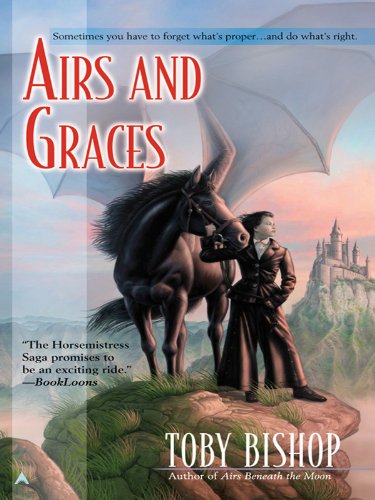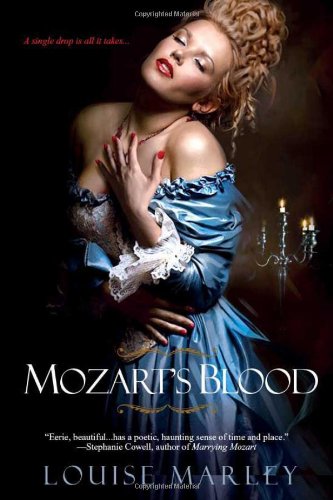Mozart’s Blood Excerpt
Quel sangue . . . quella piaga . . .
The blood . . . that wound . . .
Donna Anna, Act One, Scene One, Don Giovanni
The old woman hummed to herself as she crumbled bits of black paste into a little clay pot and added wine and water. “Good Roman wine,” she said, as she stirred it with a wooden spoon. “And honey,” she added, smiling, showing blackened teeth. “To cover the taste.”
She had told Ughetto and the other boys to call her Nonna. But she was nothing like Ughetto’s nonna. Ughetto’s nonna was plump and easy, with soft arms and warm fingers. This crone, this vecchia, was scrawny and dry and twisted, like a dead olive tree.
Ughetto knew what the black paste was. He had seen it often in his mother’s tavern in Trapani. The sailors carried it in their pockets, wrapped in bits of Chinese silk or Indian cotton. Their eyes gleamed with anticipation as they unwrapped their little bundles, opening them carefully on the wooden tables. They shaved the paste into clay pipes with small, sharp knives, and when they smoked it, the tavern filled with the pungent scent of poppies.
Ughetto’s mother always drove him out then, him and all six of his sisters. She shooed them down to the beach to search for mussels, or over to the docks to drum up trade for the tavern. They went running down the twisting streets, laughing, shouting, a horde of ragged girls with Ughetto, the baby, the only boy, struggling to keep up.
He wished his real nonna were here now, or his mamma. He wished his sisters were here, or he with them, though they ordered him about like a small slave. Home had been noisy and warm. Home had felt safe, most of the time. He didn’t like being alone, didn’t like this place, this Nonna, or Luigi, her slack-lipped son.
They had taken him in Trapani. Mamma had sent him to the docks, telling him to wait beside the pile of empty crab pots for a woman with a package. This Nonna had appeared, with her big-shouldered, big-bellied son. Nonna asked Ughetto’s name, and when he gave it, Luigi picked him up and carried him onto a waiting boat.
Ughetto was the package, it turned out, and though he wailed for his sisters, there was no one to save him.
Now, in this fearsome little casetta, Ughetto wrapped his arms around himself and shivered with fear. Luigi had already carried two other boys, eyes glazed from the opium, legs flopping limply over his big arms, into the tiled room where the tub was, where the knives waited. Ughetto crouched in the atrium under Nonna’s watchful eye, listening to the whimpers and moans as the deed was done. Luigi brought the boys back, swaddled in bloody linen, and carried them through the atrium and on into the tiny house.
Ughetto tried to turn his head away when Nonna held the cup to his lips, but she seized his hair with her brown claw, and twisted his head to face her. “Cretino,” she hissed. “Don’t be an idiot. Drink, or you’ll be screaming.”
He cried, “No! Mamma, Mamma.” Hot baby tears burned his eyes.
Nonna showed her jumbled teeth. “No more mamma, little one. Musica.”
She pressed the cup against his mouth, forcing his lips open with its metal rim. The sweet strong wine flooded his tongue, and he had to swallow, or drown. He closed his eyes, and gulped pungent sweetness. The room began to dissolve around him. He spun, stomach and brain and feet all mixed up, like diving too deep from the rocks into the warm Mediterranean waters of Trapani and not knowing which way to swim to the surface.
Nonna tipped up the cup again, and he drank, drank until it was dry.
She spoke. Ughetto heard her voice, but her words made no sense. He tried to open his eyes, but the lids would not obey him.
Perhaps he would die. Boys did, hundreds of them. Everyone knew that. They died under the knife, or they died afterward, bleeding and swollen, burning with fever. Would his mamma know if he died? Would they tell her?
Would she care?
It was possible she would not. She had regarded him so strangely, ever since that night when the family–all six girls, Ughetto, his nonna, and Mamma–had gone down to the docks in the darkness to wait for the squid boats to come in. Far out on the water, the fisherman shone their torches over the water to entice the squid to the jigs. The lights danced on the waves, shifting as the water tossed the boats to and fro.
When the moon rose over the sea, Ughetto’s sisters exclaimed at its brilliance. They turned, all of them, and lifted their faces into its silver glow. It was full and round, and its crystalline light turned the low roofs and rough-cobbled streets of Trapani into a scene of magic, a fantasy village, its dirt and poverty transformed by the moon.
Ughetto was seven years old, already wriggling with energy and pleasure at the novelty of the night. When a strange sensation came over him, standing there in the moonlight, it seemed part of the strangeness. He felt as if he were becoming someone else, someone new and powerful instead of small and insignificant. His skin itched, and his jaw ached. When he began to scratch at himself, his mamma slapped at his hands. He tried to hold still, but he felt as if he were burning, as if he had rolled in too-hot sand. He scrubbed at his belly with both hands, grunting at the fierceness of the sensation.
It was his nonna who seized him up then, lifting him in her arms as if he were still a baby. She hissed something at his mamma, who drew a sharp, shocked breath. His nonna carried him away, up through the moonlit streets to the tavern, leaving his mamma and his sisters on the docks. He remembered kicking at her, whining, but she only held him tighter, and made no answer. She bundled him into the tavern, and into his bed, folding him into his blankets, ignoring his protests. She lit no candles, nor did she stoke up the fire, but held him there in the darkness. In time, the burning of his skin subsided. By the time his mamma and sisters came home with their buckets of squid, he felt himself again. But Mamma looked at him as if he were a stranger.
And now she was lost to him. It was Luigi’s strong arms beneath him, Luigi’s rough hand seizing his head as it lolled backward. There was movement, the air changing against his face as Luigi carried him. The smell of the bath filled his nostrils with the essence of vinegar. Water rose around his legs, warm as blood. His buttocks settled onto a wooden bench that was wet and hard and splintery. Hands took hold of his feet and pulled his legs apart.
Someone held his head, murmuring something, laughing.
Someone else wielded the knife.
There was pain, sharp and surprising, and he gasped, breathing water, choking. He struggled, and someone cursed. There was a splash, and more swearing, and then someone . . . Ughetto fought his eyelids, trying to see.
Someone was growling.
His eyelids lifted, and his mind cleared all at once, as if a fog had burned away under a quickly rising sun. He peered around him through slitted eyes.
Faces looked back at him, horrified faces. Nonna shrieked something, and an open-mouthed stranger, the surgeon, backed away, knife held out before him, dripping blood onto the tiled floor. Luigi gave a guttural cry and dropped Ughetto’s head into the water.
Ughetto blew water from his mouth as he grasped the edge of the tub with both hands. He pulled himself to his feet, dripping, hot, and angry.
There was blood on his thighs, warmer than the water. His head hummed with sounds and smells he had not noticed before, the wheeze of Nonna’s breath in her aging lungs, the fetid odor of Luigi’s sweat, the scent of blood on the surgeon’s knife, on his clothes, his hands. The surgeon whimpered, and backed away.
Ughetto splashed out of the tub. Nonna tried to seize him, and he struck at her with his nails, slicing her dark skin, drawing blood. She dropped him with a cry, and he whirled to slash at Luigi next. Luigi scrambled out of reach. The smell of his fear filled the room, and made Ughetto’s mouth fill with saliva. Ughetto rounded on the surgeon next, but he saw only his heels as the man fled the room.
Ughetto fell to all fours in a movement that felt perfectly natural. He spun in a circle, and saw that Luigi and Nonna dared not come close to him. His mouth opened, and his tongue lolled, saliva dripping as he galloped from the room. He slid on the wet tiles, finding his footing once he reached the dirt floor of the atrium. The sun warmed his back as he dashed away from the house. He ran swiftly, strongly, too fast for them to follow. They had no will to chase him, in any case. The pungence of their fear assured him of that.
He raced toward the orange grove, eager for the sanctuary of its drooping branches.


